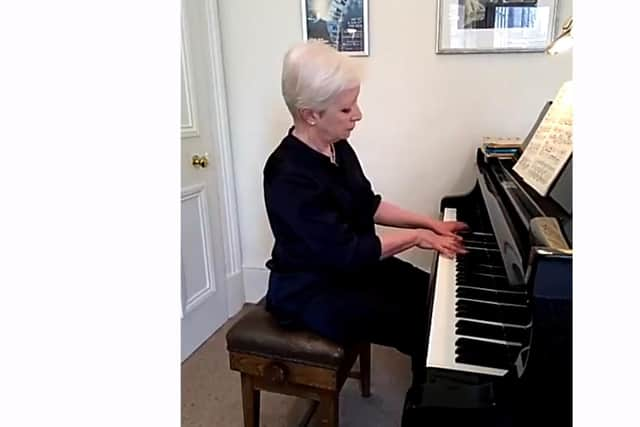The Scotsman Sessions #30: Susan Tomes
Like virtually all performers, Edinburgh-born pianist, chamber musician and writer Susan Tomes is looking at a sparsely filled diary for the immediate future. “It’s hard to keep cheerful sometimes,” she admits, “but I’m keeping busy. Some friends have said it’s difficult to work up the motivation to get their instrument out and play, but I decided at the start I’d continue playing and practising.”
And she’s hit upon a particular project for her unexpected free time. “A lot of people buy piano sheet music because there’s maybe a couple of things they’d like in it, but then they never get round to playing the rest. I looked at my own shelves and realised there’s loads of stuff there I’ve never played.”
Advertisement
Hide AdAdvertisement
Hide AdAccordingly, she’s launched into discovering little-known corners of the piano repertoire, a project she’s charting with her characteristic warmth and insight on her website (www.susantomes.com). Another writing project – her new book, A History of Piano Music in 100 Pieces, for Yale University Press – is in limbo, the manuscript submitted but the publishers currently furloughed. “The lockdown descended just after I’d sent it to them, and I’m desperate to know what they thought of it.”


By contrast, the piece she’s chosen for her Scotsman Sessions performance, Schumann’s Romance in F sharp, Op. 28/2, is one she’s known for decades. “I learnt it when I was about ten or 11, and I loved it at the time – I had a special feeling of connection with Schumann.” It has a poignant relevance to our current times, too. “I was due to play it this month in St Cecilia’s Hall at the centenary celebrations of the Edinburgh Competition Festival – the organisers contacted a few performers and asked if we could play something we’d played as a child in one of the competitions. I’ve been wondering what I would think if I could hear my ten-year-old self playing it now. It might not be technically complicated, but you feel like you’ve been on a journey in the piece, from simple to complicated and back again.”